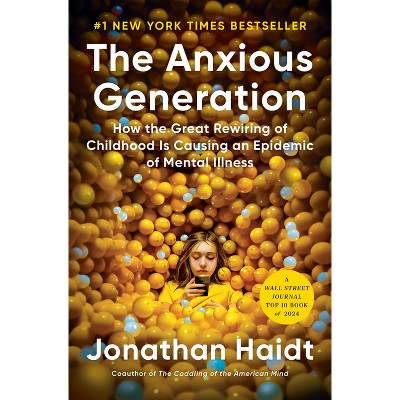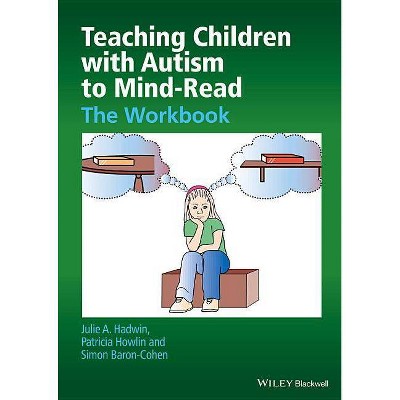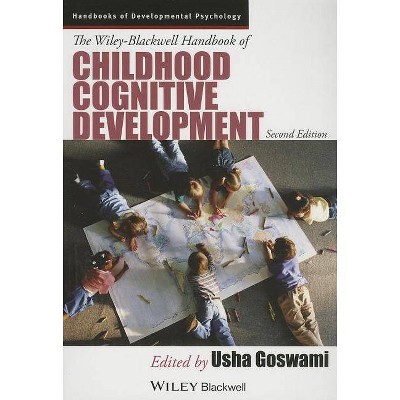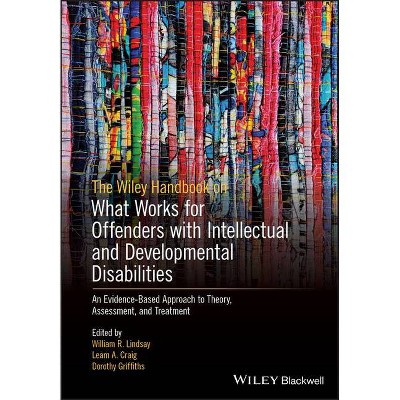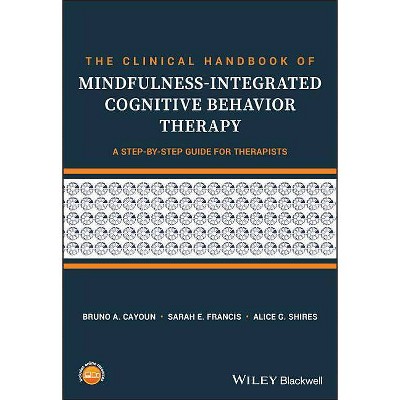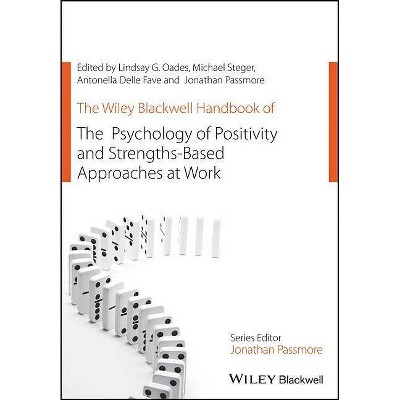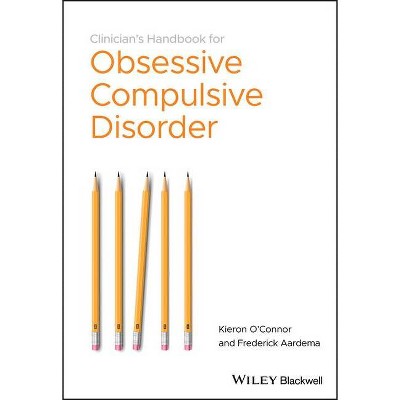The Handbook of Solitude - 2nd Edition by Robert J Coplan & Julie C Bowker & Larry J Nelson (Hardcover)

About this item
Highlights
- Learn more about the positive and negative psychological effects of solitude, isolation, and being alone in this expertly edited resource It has never been more important to understand the impact of solitude.
- About the Author: Robert J. Coplan, PhD, is Professor in the Department of Psychology at Carleton University and Director of the Pickering Centre for Research in Human Development.
- 480 Pages
- Psychology, Developmental
Description
About the Book
"The Handbook of Solitude (Coplan & Bowker, 2014) was the first academic volume to specifically explore the many different faces of solitude. Since that time, there has been considerable advancement in the psychological study of solitude, with novel and exciting research focusing on previously unconsidered aspects of being alone. In this edition of the Handbook of Solitude, we are absolutely thrilled to present a blend of new and updated chapters that approach the study of solitude from a myriad of theoretical perspectives and methodological approaches, and with critically important applications for practice and policy. In this introductory chapter, we revisit some of the key historical themes in the study of solitude, consider some of the novel issues that have emerged in recent years, and describe a broad theoretical model of the causes and consequences of solitude. We finish the chapter with an overview of the novel and updated contents of this new volume"--Book Synopsis
Learn more about the positive and negative psychological effects of solitude, isolation, and being alone in this expertly edited resource
It has never been more important to understand the impact of solitude. The newly revised and updated second edition of The Handbook Of Solitude: Psychological Perspectives On Social Isolation, Social Withdrawal, and Being Alone delivers another comprehensive academic volume of psychological research on the topic of solitude. This second edition includes a new organizational framework that considers both contemporary and emerging conceptual perspectives along with a more nuanced approach to the significance of context in the study of solitude. There is also an increased focus on clinical, developmental, and social psychological perspectives.
The latest edition also offers new discussions regarding recent trends in the positive aspects of solitude, including a new chapter on mindfulness, and provides more detailed coverage of the emerging impact of social media and computer gaming on psychological health and well-being across the lifespan. Scholars from across the world have contributed to this volume, coming from countries including Australia, Canada, China, Finland, Greece, Poland, South Korea and the USA, among others.
The editors offer a broad and complete perspective that will appeal to many disciplines within psychology, and the book provides accessible content that is relatively brief in length and edited to remove unnecessary technical jargon. The book also includes:
- Lengthy discussions of historical and theoretical perspectives on solitude, including the phenomenon of social withdrawal in childhood
- An exploration of the significance of close relationships, including with peers and parents, on experiences of being alone and psychological well-being
- A treatment of the neuroscientific and evolutionary perspectives on shyness and social withdrawal
- A comprehensive section on solitude across the lifespan, including expressions of shyness in infancy and childhood, the causes and consequences of playing alone in childhood, social withdrawal in adolescence and emerging adulthood, being single in adulthood, and isolation, loneliness, and solitude in older adulthood
- A consideration of solitary confinement as an extreme form of social isolation
- Careful cultural consideration of solitude and related constructs with new chapters on immigration and hikikomori
Perfect for advanced undergraduate and graduate level students taking a variety of courses in developmental, biological, social, personality, organizational, health, educational, cognitive, and clinical psychology, the second edition of The Handbook Of Solitude has also earned a place in the libraries of researchers and scholars in these, and related psychological disciplines.
From the Back Cover
Learn more about the positive and negative psychological effects of solitude, isolation, and being alone in this expertly edited resource.
It has never been more important to understand the impact of solitude. The newly revised and updated second edition of The Handbook Of Solitude: Psychological Perspectives On Social Isolation, Social Withdrawal, and Being Alone delivers another comprehensive academic volume of psychological research on the topic of solitude. This second edition includes a new organizational framework that considers both contemporary and emerging conceptual perspectives along with a more nuanced approach to the significance of context in the study of solitude. There is also an increased focus on clinical, developmental, and social psychological perspectives.
The latest edition also offers new discussions regarding recent trends in the positive aspects of solitude, including a new chapter on mindfulness, and provides more detailed coverage of the emerging impact of social media and computer gaming on psychological health and well-being across the lifespan. Scholars from across the world have contributed to this volume, coming from countries including Australia, Canada, China, Finland, Greece, Poland, South Korea and the USA, among others.
The editors offer a broad and comprehensive perspective that will appeal to many disciplines within psychology, and the book provides accessible content that is relatively brief in length and edited to remove unnecessary technical jargon. The book also includes:
- Lengthy discussions of historical and theoretical perspectives on solitude, including the phenomenon of social withdrawal in childhood
- An exploration of the significance of close relationships, including with peers and parents, on experiences of being alone and psychological well-being
- A treatment of the neuroscientific and evolutionary perspectives on shyness and social withdrawal
- A comprehensive section on solitude across the lifespan, including expressions of shyness in infancy and childhood, the causes and consequences of playing alone in childhood, social withdrawal in adolescence and emerging adulthood, being single in adulthood, and isolation, loneliness, and solitude in older adulthood
- A consideration of solitary confinement as an extreme form of social isolation
- Careful cultural consideration of solitude and related constructs with new chapters on immigration and hikikomori
Perfect for advanced undergraduate and graduate level students taking a variety of courses in developmental, biological, social, personality, organizational, health, educational, cognitive, and clinical psychology, the second edition of The Handbook of Solitude has also earned a place in the libraries of researchers and scholars in these, and related psychological disciplines.
About the Author
Robert J. Coplan, PhD, is Professor in the Department of Psychology at Carleton University and Director of the Pickering Centre for Research in Human Development. His research focuses on the development and implications of shyness and social withdrawal, from early childhood to emerging adulthood, and across cultures.
Julie C. Bowker, PhD, is Associate Professor of Psychology at the University at Buffalo, State University of New York. Her research focus is on socio-emotional development and psychopathology during late childhood and early adolescence.
Larry J. Nelson, PhD, is Professor in the School of Family Life at Brigham Young University in Provo, Utah. His research focuses on factors related to flourishing and floundering in the transition to adulthood including the role of social withdrawal, parenting, and culture.
Shipping details
Return details
Trending Diet, Health & Fitness Books





